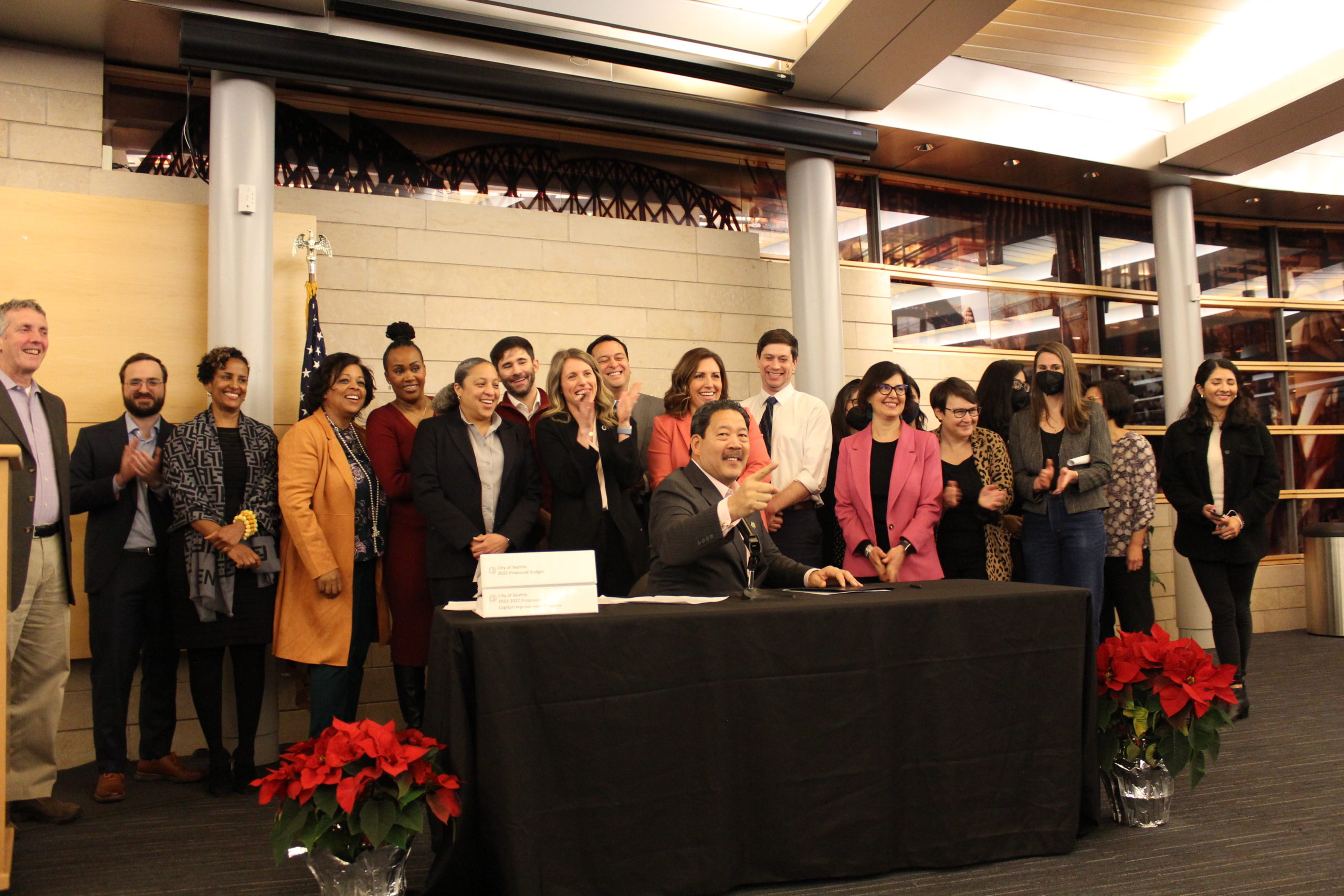
Seattle – Mayor Bruce Harrell signed the 2023-2024 Budget into law, totaling approximately $7.4 billion in appropriations overall, including $1.6 billion in General Fund. This is the first biennial budget since the onset of the COVID-19 pandemic.
Responding to a $141 million revenue gap, the final budget adopted by the City Council reflects core priorities of Mayor Harrell’s budget proposal, which focused on improving public safety, urgent action on housing and homelessness, and delivering the essential City services that residents expect and demand. The final budget makes a record half a billion-dollar investment over the biennium in affordable housing to address the city’s housing and homelessness crises, boosts investments in public safety and police hiring, and addresses community priorities to drive opportunity and equity for all.
“This was a historically challenging budget year, but I believe that we have put forward a high-quality final product that makes smart investments in the urgent needs of our communities as we advance our efforts to build One Seattle,” said Mayor Harrell. “I want to thank City Councilmembers for their openness and dialogue throughout this process, and the staff at the City Budget Office for the many hours of work they put in to craft a budget that translates our highest values into the form of deliberate investments. Our focus now shifts to the critical work of implementation – using these resources to keep people safe, get people indoors, and move forward a city where we all feel welcome, secure, and supported.”
Select highlights of the 2023-2024 budget include:
Public Safety
- Full funding of the mayor’s SPD recruitment plan to hire needed police officers more quickly including additional positions to assist SPD with recruiting and retaining police officers
- A 50% increase in the SFD firefighter recruitment class and continued operation of Ladder 13 and Medic 26
- Enhanced victim support services for survivors of domestic violence, sexual assault, and other crimes and investments in additional Domestic Violence prosecutors
- Investments in community-based solutions to address gun violence
- Funding to invest in 911 response diversification
Housing and Homelessness
- The largest one-year investment in affordable housing in City history – approximately $250 million for development of affordable housing per year, representing a new level of commitment to addressing the city’s housing and homelessness crises
- Investments in the Unified Care Team to support ongoing efforts to ensure a clean city and transition to geographically based teams that provide tailored outreach and support for neighborhoods
- Over $95 million investment in the King County Regional Homelessness Authority to maintain and improve shelter options, outreach services, and other critical programs for people experiencing homelessness
- New shelter units and safe lot spaces, putting the City on course to meet the 2000-unit identification goal
Meeting Urgent Needs and Preparing for the Future
- Increased mental health services in Seattle schools called for by students in the wake of the Ingraham High School shooting
- $5 million to support bonuses for Seattle’s 4,600 childcare workers serving over 20,000 Seattle children and $5 million to support future generations of kids and educators through UW’s Rainier Valley Early Learning Campus
- Support for small business and economic revitalization programs through the Office of Economic Development, as well as activation of downtown and City Hall Park
- $20 million in Green New Deal Investments, including the One Seattle Climate Justice Agenda through climate resilience hubs and incentives to help middle-and-low-income residents transition from oil to electric heat pumps
- Investments in planning for Sound Transit 3 to include community outreach and engagement and ensure transit infrastructure work meets residents’ needs and minimizes displacement